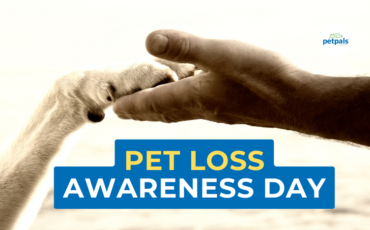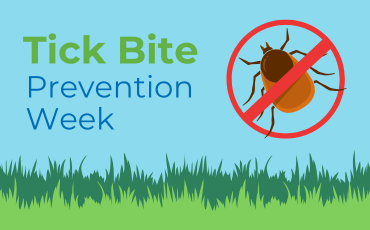Dementia in Dogs
17th July 2018

Sadly we are all too familiar with the term dementia in relation to human beings but did you know that dogs can also suffer from dementia? Maybe you’ve had experience of the condition with one of your own? Perhaps one of your elderly dogs is acting strangely and you’ve found yourself wondering, ‘does my dog have dementia?’
In this article we have gathered together information from across the internet about dementia in dogs and provided links to the articles we have quoted.
As we say with every, medically-related blog we write, Petpals are NOT medically trained or qualified and if you have concerns you should take your dog to the vets, we simply want to bring together as much information for you as possible to increase your knowledge and help you make well-informed decisions on the welfare of your pet.
What is dementia in dogs?
Dementia is a term used to cover a multitude of symptoms caused by a gradual loss of brain function. The clinical name for it is Canine Cognitive Dysfunction or CCD. One of the reasons we see and recognise more dementia in dogs could be because they are living longer due to improved feeding and welfare standards. Recent statistics say that as many as 1 in 3, 11yr old dogs suffer from signs of dementia*.
A very good article by Pets4Homes explains;
‘At present there is no conclusive cause known although it is believed that certain changes in the brain can contribute. Nerve function is vital to cognitive function and this relies on the chemical reaction of transmission of information across nerve pathways – from structures known as synapses. Each nerve firing is a message to the body to react, whether this is physical or mental, the nervous system has overriding control of the speed of reactions in the dog.
‘One theory on a contributing factor to dementia is as the dog ages a protein known as beta amyloid accumulates in the brain clustering around the nerves (known as a plaque). The build-up acts as an insulator to the chemical process of the nerve firing and thus prevents or slows the nerve sending the message to the receptors in the body. As the amount of beta amyloid increases it becomes increasingly difficult for the nerves to work effectively.
‘Another view related to the nerve action is that decreased dopamine production has been identified in cases of dementia. Dopamine is a neurotransmitter and its presence is essential for effective nerve transmission.
‘These findings are extremely useful when looking at possible treatments to manage the condition.’
Is there a cure for dementia in dogs?
Sadly no, although there are drugs that can help the symptoms and, by increasing their understanding of how it occurs, vets are improving their approach to dementia all the time.
What are the symptoms of dementia in dogs?
Signs can include:
- Behavioural changes – often due to confusion, dogs may become irritable and snappy, even one that was once very placid can withdraw into itself and snap when interrupted
- Change in family behaviours – your dog may no longer react to his name or your voice, and may not greet you happily at the door as he has done in the past, becoming more withdrawn, seeming depressed or forgetting members of the family or other pets
- Loss of memory – not responding to familiar commands, forgetting previously learnt behaviours and difficulty in learning new tasks.
- A blank, lost look in the dogs eyes – they appear distant and unreactive
- Change of sleeping patterns – erratic sleep patterns, maybe sleeping all day and awake all night; excessive sleeping or insomnia
- Change to appetite – usually a decrease, but sometimes an increase occurs as the animal appears to forget it has already eaten
- Changes in activity – reduced levels of activity or aimless pacing and staring into space
- Circling – walking round in a circle continuously
- Changes in vocalisations – howling or crying more than usual, often at night; may whine, pant or bark at inappropriate times
- Confusion or disorientation – getting lost in familiar places or getting ‘trapped’ in a corner and not being able to find their way out
- Decreased activity levels
- Generalized anxiety
- Loss of toilet training – soiling indoors
What is the treatment for dementia in dogs?
‘Although there is no cure for dementia and ultimately the condition will progress, there are options available which can help manage the signs and slow further degeneration.
‘Two medications are commonly prescribed in these cases, they are called Selegiline hydrochloride (marketed in the UK as Selgian by CEVA on prescription only) and Propentofylline (marketed amongst others as Vivitonin, Vitofyllin and the generic drug).
‘Selegiline has shown proven efficacy in dementia cases by improving signs of the condition in around 75% of cases *. It is commonly prescribed in humans and directly affects the firing of the nerves by increasing the level of the neurotransmitter dopamine. Propentofylline is generally prescribed to help manage signs of dementia, the drug does not work on nerve transmission instead it increases blood flow to the brain. Improvements in the dog’s energy levels, concentration and physical signs such as panting can be seen with use of this medication.
‘In addition to medications, a number of pet foods manufacturers now offer complete diets which are promoted as counteracting the signs of ageing. The formulation is based on antioxidant complexes and addition of Omega Fatty acids. A branded diet has reported improvements in accidents in the house (74% of dogs) and increased recognition in greeting family members (61%) after 30 days on the diet.* Separate supplements to add to your dog’s diet are also sold in pet stores and in vets. The formulations are based on the addition of antioxidants, B Vitamin complex, Choline and essential fatty acids, all of which have attributions which may help with signs of brain ageing.’
How to care for a dog with dementia
As we have said, there is no cure for dementia, although in certain cases drugs may be prescribed by your vets. However, in the majority of cases it will simply be a case of making life as comfortable and stress free as possible for your dog.
There are a few things you can do to help them feel safe and secure;
- If your dog sleeps in a crate, make sure he can find it easily and that it remains in the same place, to help him find it easily
- If he isn’t ‘crate trained’, it might be an idea to introduce one now (leaving the door wide open of course), possibly covered with a blanket, to give him a cosy, safe place to rest
- Even if you’ve never done it before, now is the time to establish a routine. Feed him at the same time every day. Let him out frequently and, if necessary, take him to the same spot in the garden to have a wee. ‘Accidents’ are part of dementia and not his fault at all.
- If you do have to go out and leave him, restrict the space he can wander around in, it will save him the distress of becoming disorientated
- Keep food and water bowls in the same place, so he always knows where to find them
- Some dogs suffer with stiffness in their joints as they age; you might like to think about raising his food and water bowls to help him
- Exercise is still really important –make sure he gets as much as he can cope with. Spending this time with your dog will also comfort and reassure him
- It may be worth keeping a diary of his health and behaviour so you can report any noticeable declines to the vet, if you are at all worried about your dog, or suspect he has dementia, we would suggest you visit your vets as soon as possible.
Petpals ‘elderly dog’ visits
At Petpals we offer a special ‘elderly dog’ service to our clients. Our carers, hugely experienced dog-lovers, will come into your home to visit your dog, while you are at work, fully aware of all the points mentioned above. Mindful of possible confusion, we will take him into the garden or out for a walk, sit with him for some cuddles, make sure he has had a drink and something to eat (if it is food time), and settle him back in his bed before we leave. We understand that coping with a dog with dementia is a sensitive subject and will tailor our service to suit each individual dog.
ENDS JULY 2018
Sources:
http://www.vetstreet.com/our-pet-experts/dementia-in-senior-dogs-6-ways-to-deal-with-the-effects
https://www.pets4homes.co.uk/pet-advice/diagnosis-and-management-of-dementia-in-dogs.html
* Sources : Hill’s B/d- nurse training 2011, Selgian Consumer information leaflet, Hill’s B/d client information pack
To find your local Petpals please visit: https://petpals.com/
 Petpals has over 50 operations covering most of the United Kingdom. If you would like to know more about buying your own Petpals franchise. please click here for more information about how to make your dream of working with animals, come true.
Petpals has over 50 operations covering most of the United Kingdom. If you would like to know more about buying your own Petpals franchise. please click here for more information about how to make your dream of working with animals, come true.
Cat Sitting Services All Pet Services Franchise Opportunities Contact Us









